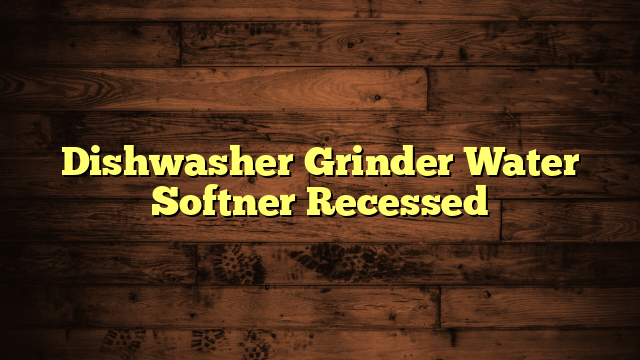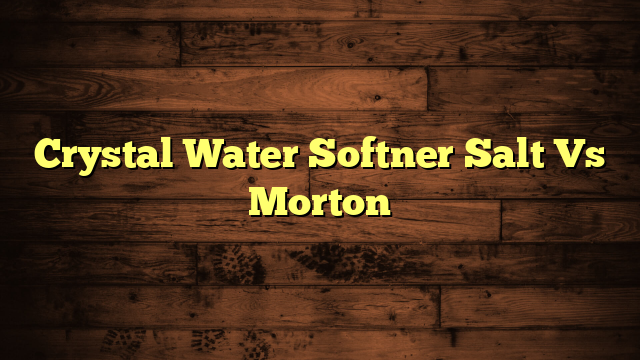Can Water Softner Regenerate Automatically?
Like a clockwork mechanism, a water softener's ability to regenerate automatically can transform your approach to managing water quality. You might wonder how these systems know when to kick into gear, and whether the convenience justifies the investment. Automatic regeneration not only promises efficiency but also guarantees your home's plumbing stays in top shape. Yet, there are details about how this process works and the factors that influence its effectiveness that could surprise you. What's really happening behind the scenes?
Key Takeaways
- Yes, many water softeners have automatic regeneration systems that manage cycles based on water usage and hardness level.
- Automatic systems optimize efficiency by scheduling regeneration during low-usage hours, ensuring consistent water quality.
- They eliminate the need for manual intervention, reducing maintenance chores for homeowners.
- Regular automatic regeneration helps prevent scale buildup and extends the lifespan of plumbing appliances.
- These systems are designed to adapt to varying water consumption patterns, enhancing overall household efficiency.
Understanding Water Softener Regeneration
Water softener regeneration is an important process that guarantees your system continues to provide soft water. When water hardness increases due to mineral buildup, your softener struggles to keep up with demand. The ion exchange process is vital here; it's how your system removes hard minerals like calcium and magnesium from the water.
However, over time, the resin beads that facilitate this exchange become saturated and less effective. During regeneration, the system flushes out these beads with a brine solution, restoring their ability to capture hard minerals.
This process typically occurs automatically, depending on your softener's settings, but it can also be manually initiated. You'll want to make sure that regeneration occurs regularly; otherwise, you risk experiencing hard water issues, which can lead to scale buildup in your pipes and appliances.
Understanding when and how regeneration happens helps you maintain peak water quality. Keep an eye on your system's salt levels and follow the manufacturer's guidelines for maintenance.
Types of Water Softeners
Choosing the right water softener can considerably enhance your home's water quality. There are several types of water softeners available, each designed to meet specific needs.
The most common type is the ion exchange system, which effectively removes hardness minerals like calcium and magnesium from your water. In this system, hard water passes through a resin bed, where these minerals are exchanged for sodium ions, resulting in softened water.
Another option is salt-free water softeners, which don't rely on ion exchange. Instead, they use a process called template-assisted crystallization to prevent scale buildup. While they're effective at reducing scale, they don't remove hardness minerals entirely, which may be a consideration for your household.
You may also encounter dual-tank systems, designed for larger households that require high system efficiency. These systems can regenerate automatically, ensuring a continuous supply of softened water.
Ultimately, selecting the right type of water softener depends on your specific needs, water usage, and the hardness level of your water. Make sure to weigh the pros and cons of each type to find the best fit for your home.
How Automatic Regeneration Works
When you set up an automatic water softener, it's designed to manage regeneration cycles based on your water usage.
This means the system knows when to run and how much salt it needs to keep your water soft and free of hardness.
Regeneration Cycle Timing
Automatic regeneration in water softeners relies on precise timing to guarantee effective operation. Understanding regeneration timing is essential for ensuring your system runs smoothly, providing softened water when you need it most.
Automatic systems typically schedule regeneration at ideal intervals based on water usage patterns, ensuring efficiency and cost-effectiveness.
Here are four key factors that influence regeneration cycle timing:
- Water Usage: Analyzing your household's water consumption helps determine when to initiate regeneration cycles.
- Hardness Level: The higher the hardness level, the more frequently your softener will need to regenerate to maintain soft water.
- System Capacity: The size of your water softener impacts how often it needs to regenerate. Larger systems can handle more water before needing a cycle.
- Pre-set Schedules: Many softeners allow you to set specific times for regeneration, which can be beneficial during low-usage hours, like overnight.
Salt Consumption Management
Managing salt consumption in a water softener is vital for maintaining both efficiency and cost-effectiveness. When you think about automatic regeneration, it's important to take into account how your system optimizes salt usage. By using a metered approach, your water softener can track the amount of water processed, guaranteeing regeneration occurs only when necessary. This not only enhances salt efficiency but also minimizes waste, allowing you to save money over time.
Automatic regeneration systems can adjust based on your household's specific water needs, further supporting resource optimization. For instance, if you have a higher demand for softened water, the system will adapt by regenerating more frequently. Conversely, during periods of low water use, it conserves salt by reducing regeneration cycles.
Regularly checking salt levels is another way you can manage consumption effectively. If levels are too low, your system can't function properly, leading to inefficiencies.
Keeping an eye on your salt supply, combined with an automatic regeneration feature, will guarantee you're maximizing both the performance of your water softener and your budget. By understanding these dynamics, you're making a smart choice for your home.
Benefits of Automatic Regeneration
One of the standout features of modern water softeners is their ability to regenerate automatically. This innovation not only enhances automatic efficiency but also provides significant time savings for you. You won't have to worry about manually managing the regeneration process, which can often be a hassle.
Here are some key benefits of automatic regeneration:
- Consistent Water Quality: With automatic regeneration, you always get soft water, reducing hard mineral buildup in your pipes and appliances.
- Convenience: You can set it and forget it. The system takes care of itself, freeing you from routine maintenance chores.
- Cost-Effective: Improved efficiency translates to reduced salt and water consumption, saving you money on utility bills.
- Extended Appliance Lifespan: By preventing scale buildup, your appliances last longer and perform better, reducing replacement costs.
With these advantages, automatic regeneration stands out as a smart investment for any household.
You'll find that it not only simplifies your life but also enhances the quality of your water, making daily tasks easier and more efficient. Enjoy the benefits of a soft water system that works seamlessly in the background!
Factors Affecting Regeneration Frequency
The frequency of regeneration in water softeners can vary based on several factors that influence how often your system needs to refresh itself.
One significant factor is water hardness. The harder your water, the more minerals it contains, which means your softener has to work harder and regenerate more frequently to remove those minerals.
Another important aspect is the size of your household. If you have a larger family, you're likely using more water, leading to increased demand on your softener and more frequent regeneration cycles.
Moreover, your water softener's capacity plays a role; units with larger resin tanks can handle more water before needing to regenerate, while smaller units may require more frequent cycles.
Lastly, regeneration triggers, such as time-based or demand-based settings, can influence how often your system regenerates. Time-based systems regenerate at set intervals, while demand-based systems regenerate based on actual water usage.
Signs Your Water Softener Needs Regeneration
Recognizing your water softener's need for regeneration is essential for maintaining its efficiency and ensuring your water stays soft. Ignoring the signs can lead to increased water hardness and reduced effectiveness of your system.
Here are some key regeneration indicators to watch for:
- Increased Water Hardness: If you notice soap not lathering well or mineral buildup on your fixtures, your water softener may need regeneration.
- Unpleasant Taste or Odor: A change in the taste or smell of your water can signal that your softener isn't effectively removing hard minerals.
- Frequent Clogging: If your plumbing is experiencing more clogs than usual, it could be due to sediment buildup caused by insufficient regeneration.
- Regularly Check Your Salt Levels: If you find that your salt levels are consistently low, it may indicate that your unit isn't regenerating as it should.
Maintenance Tips for Automatic Systems
Making certain your automatic water softener operates smoothly requires regular maintenance to keep it running effectively. By following a few key maintenance schedules, you'll extend the lifespan of your system and improve its efficiency. Here are some essential tips:
| Maintenance Task | Frequency |
|---|---|
| Check salt levels | Monthly |
| Clean the brine tank | Every 6 months |
| Inspect and clean filters | Every 3 months |
| Test water hardness | Quarterly |
First, check the salt levels in your brine tank monthly. Low salt can hinder regeneration, affecting system efficiency. Next, clean the brine tank every six months to prevent sediment buildup. This will make sure your system works at its best. In addition, inspect and clean filters every three months to avoid clogs that can reduce performance. Finally, testing your water hardness quarterly can help you monitor how well your softener is functioning.
Comparing Manual vs. Automatic Systems
When considering water softeners, you might find yourself weighing the benefits of manual versus automatic systems. Both options have their unique advantages, and understanding these can help you choose what suits your needs best.
- Manual Controls: With manual systems, you decide when to regenerate. This gives you full control over the process, allowing adjustments based on your water usage patterns.
- System Efficiency: Automatic systems often optimize efficiency by regenerating only when necessary, based on water consumption. This can save salt and water, making them more eco-friendly.
- User Experience: Manual systems require more hands-on management, which some users prefer to maintain control. However, automatic systems are hassle-free, automatically handling regeneration for you.
- Cost Considerations: Generally, manual systems are less expensive upfront, while automatic systems might have higher initial costs but can save money in the long run through better efficiency.
Ultimately, your choice should reflect your lifestyle, budget, and how much maintenance you're willing to undertake. Understanding the differences in manual controls and system efficiency will guide you toward the best water softening solution for your home.
Frequently Asked Questions
Can I Manually Intervene During Automatic Regeneration Cycles?
Yes, you can manually intervene during regeneration cycles. If you notice your water softener needs adjustments, pause the cycle and make necessary changes. Just remember to resume the cycle afterward for ideal performance.
How Long Does the Regeneration Process Typically Take?
Ever wondered how long it takes to refresh your water softener? The regeneration duration usually spans 30 minutes to two hours, impacting softener efficiency. You'll appreciate knowing when to expect that fresh, softened water!
Are There Any Water Softeners That Don't Require Regeneration?
Yes, there are salt-free alternatives that don't require regeneration. These systems provide continuous softening without the need for salt, so you can enjoy softened water without the maintenance and hassle of traditional water softeners.
Will a Water Softener Affect My Water Pressure?
Did you know that nearly 85% of U.S. households face hard water issues? A water softener can actually enhance water pressure and improve softener efficiency, ensuring a consistent flow while reducing mineral buildup in your plumbing.
How Can I Tell if My Water Softener Is Malfunctioning?
To tell if your water softener's malfunctioning, watch for malfunction signs like reduced water flow or salty taste. Use troubleshooting tips like checking the salt level and inspecting connections to guarantee everything's functioning properly.
Conclusion
To sum up, an automatic water softener is like having a reliable assistant who always knows when to step in, ensuring you enjoy soft water without the hassle. By understanding how these systems work and recognizing their benefits, you can maintain top-notch water quality effortlessly. Remember to monitor your usage and stay aware of any signs that indicate a need for regeneration. With proper care, your automatic system will keep your water soft and your plumbing in great shape.







